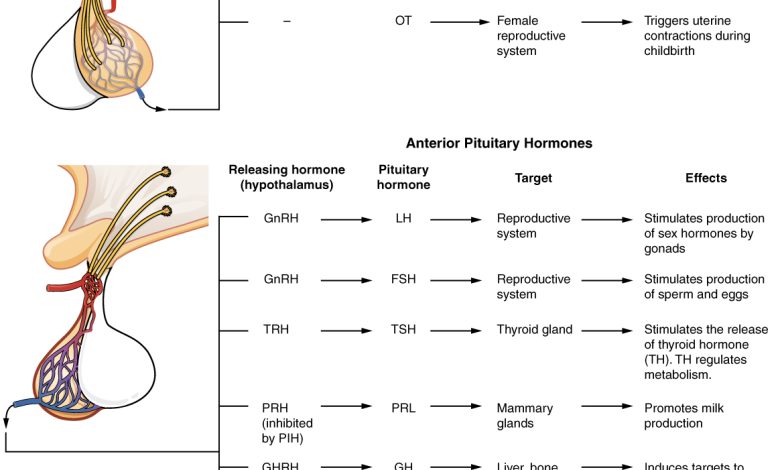13 Differences between Enzymes and Hormones

When it comes to biological occurrences in the body, many people may confuse enzymes and hormones. While these two terms are often used interchangeably, some key differences between the two should be noted.
Here, we will take a closer look at enzymes and hormones, highlighting key differences between the two. If you’re interested in supplements that can help with hormonal balance, you may want to check out this alpha testosterone booster from Simply.
Main Function
Enzymes are biological catalysts that improve the rate of chemical reactions in the body, while hormones are organic compounds that regulate various processes throughout the body. An example of an enzyme is pepsin, which helps with the digestion of protein. Many enzymes help with the breakdown and digestion of food.
Hormones pass signals from one cell to another, telling the body to perform certain tasks. An example of a hormone is insulin, which helps to regulate blood sugar levels.
The insulin process starts when the pancreas senses high blood sugar levels. The pancreas then releases insulin into the bloodstream, which helps to bring down those blood sugar levels.
2. Location
Enzymes are found in all body tissues, while hormones are only produced in specific glands. Your enzymes are mainly in your digestive system, where they help break down the food you eat.
Hormones are in your glands such as the pituitary, thyroid, and adrenal glands. The reproductive organs such as the testes and ovaries also produce hormones.
Your enzymes only produce reactions at their origin site. Hormonal reactions can take place throughout your body and away from the original location. In the reproductive system, a hormonal reaction can take place in the ovaries, but it can also affect the uterus or fallopian tubes.
3. Chemical Composition
Enzymes are proteins, while hormones can be either amino acids or proteins. When hormones are proteins, they are called polypeptide hormones.
4. Release
Enzymes are released when needed, while hormonal release happens in a more regulated fashion. For example, the release of digestive enzymes is in response to the presence of food. Other enzymes such as ptyalin are only released in the presence of carbohydrates.
The release of hormones, on the other hand, is regulated by the hypothalamus in the brain.
5. Cell Interaction
Hormones can diffuse through cell membranes and interact with intracellular receptors, while enzymes must bind to the surface of their target cells. Enzymes can’t diffuse through cell membranes because of their large size and high molecular weight.
6. Types
There are three types of enzymes: metabolic, digestive, and storage. Metabolic enzymes are responsible for chemical reactions in the body that occur during digestion, muscle contraction, and detoxification.
Digestive enzymes are only found in the digestive system and help to break down food. Storage enzymes are found in organs such as the liver and pancreas and help to store energy.
There are two types of hormones: proteinaceous and steroid. Proteinaceous hormones are made up of amino acids and include hormones such as insulin and follicle-stimulating hormone (FSH).
Steroid hormones consist of cholesterol and includes hormones such as testosterone, estrogen, and progesterone.
7. Speed
Enzymes don’t take long to start working in the body. Some enzymes can work in as little as ten milliseconds. Hormonal action may be a slower process that may take seconds, minutes, or hours to start working.
8. Reuse and Lifecycle
Enzymes are reusable while hormones are not. Our bodies don’t use up enzymes for the chemical reaction they catalyze.
9. Variation
As you age, your hormones will change, but your enzymes will not. This change happens because the hypothalamus regulates the production of hormones. Over time, this production is affected by things like stress and age.
10. Response to inhibitors
Hormones are not as inhibited as enzymes. This is because hormones typically bind to receptors on the surface of cells, while enzymes bind to the substrate they are working on.
11. Dependence
Your hormones are independent of enzymes to function, but enzymes are dependent on hormones to function. This is because enzymes need a specific hormone to bind to work.
12. Control
Hormones are controlled by the endocrine system, while enzymes are not. The endocrine system consists of glands that secrete hormones. The most well-known gland in the endocrine system is the pituitary gland, which regulates growth hormones and other vital hormones.
The endocrine system does not handle enzymes. Instead, enzymes are regulated by things like pH and temperature. When PH levels get too high or low, enzymes can become denatured and stop working. The ideal temperature for enzymes to work is 37 degrees Celsius, which is the temperature of the human body.
13. Disease
The body may become susceptible to illness when it can no longer sufficiently produce enzymes. A lack of enzymes can lead to problems including indigestion, nutrient deficiencies, and fatigue.
However, both the overproduction and low production of hormones can lead to disease. For example, too much testosterone can lead to polycystic ovary syndrome (PCOS), while too little testosterone can lead to erectile dysfunction. Excess estrogen can lead to endometriosis, while too little estrogen can cause hot flashes and night sweats.



